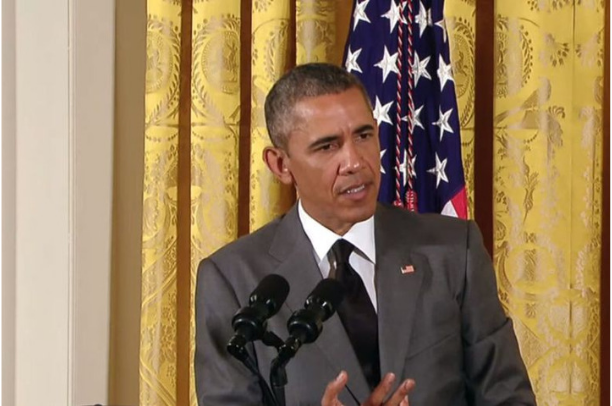Mastery Leadership Coaching and Becoming Better, Not Just Replicas – Nicholè Mcgill-Higgins MCC

Have you ever wondered what it really means to honor your heritage while forging your own unique path? How can a deeper understanding of your family’s history become a powerful driver of personal and professional success? For entrepreneurs within the African diaspora, these aren’t just philosophical questions—they are essential to building authentic leadership and driving meaningful innovation in business.
Learn How to Leverage Your Story through our Story To Asset Framework.
Today, we’ll explore these powerful themes with insight and inspiration from Nicholé McGill-Higgins, who brings clarity, wisdom, and lived experience to the conversation.
According to a September 2024 article by McKinsey & Company, effective leadership is more than just a title—it’s a dynamic set of mindsets and behaviors that align people toward a shared vision, foster collaboration, and equip teams to adapt in an ever-changing environment.
See the full podcast interview
The article emphasizes that leadership is context-driven and multifaceted, showing up in different ways across organizations and cultures. Based on McKinsey’s in-depth analysis of academic literature and a global survey involving nearly 200,000 individuals across 81 organizations, they identified four key types of behavior that account for 89% of leadership effectiveness.
These behaviors form a powerful foundation for anyone seeking mastery in leadership and personal growth, a critical pillar in the journey of becoming better through leadership coaching.
In a world where narratives shape identities and drive change, your story is a powerful tool. By embracing and sharing your unique journey, you not only connect with others but also pave the way for future generations.
This approach is at the heart of the philosophy shared by Master Leadership Coach Nicholé McGill-Higgins in her conversation on the Obehi Podcast.
The Power of Narrative in Diaspora Entrepreneurship
Storytelling is more than an art—it’s a catalyst for connection and transformation. For African diaspora entrepreneurs, weaving personal and cultural narratives into their business strategies can lead to authentic branding and deeper audience engagement. This method goes beyond marketing; it’s about building communities and fostering genuine relationships.
See also The Secret Of Product Design: Why Audience Segmentation Is Crucial For Creative Entrepreneurs
Afrocentric businesses are making a powerful impact in global markets—from fashion to food, they bring cultural depth and vibrancy to their offerings, captivating diverse audiences and contributing to economic growth. This movement underscores a vital truth: embracing one’s heritage can be a game-changer in the entrepreneurial journey.
Obehi Ewanfoh, a passionate advocate for storytelling, champions this approach. He empowers entrepreneurs and professionals—especially within the African diaspora—to own their voices and lead with authenticity in business and beyond.
Through his Story to Asset framework and his five-part book series, The Storytelling Mastery, Ewanfoh helps individuals transform their personal narratives into powerful tools for impact, influence, and success.
Leadership Coach for purpose driven entrepreneurs
A Leadership Coach for purpose-driven entrepreneurs is a specialized guide who helps founders and changemakers lead with intention, clarity, and impact. Unlike traditional business coaches who may focus strictly on performance metrics or profitability, leadership coaches work at the intersection of vision, values, and strategy.
They support entrepreneurs in aligning their personal purpose with their business goals—helping them lead authentically, inspire others, and navigate the unique challenges that come with mission-driven work. This might include refining a founder’s leadership style, enhancing emotional intelligence, or making tough decisions that balance social impact with sustainability.
For entrepreneurs in the African diaspora and other underrepresented communities, this kind of coaching can be especially transformative. Leadership coaching creates a safe, reflective space to unpack internalized narratives, break generational cycles, and reimagine leadership beyond traditional models.
It’s not just about growing a business—it’s about growing as a leader who can influence systems, empower communities, and build a legacy rooted in purpose. Whether you’re launching a startup or scaling a social enterprise, a leadership coach helps you stay connected to your “why” while building the strategy and resilience to thrive.
Nicholé McGill-Higgins: A true pillar of Leadership and Advocacy
With over two decades of experience, Nicholé is a powerful example of purposeful and impactful leadership. Her work coaching senior leaders and championing race equality and inclusion has not only transformed organizations but also uplifted countless individuals.
What sets Nicholé apart is her authentic approach—grounded in empathy, lived experience, and a deep understanding of the unique challenges faced by the African diaspora and people from other cultural background. She leads with both heart and strategy, creating spaces where real change can take root.
Her philosophy emphasizes that leadership is not about competition but about elevation. It’s about building upon the foundations laid by previous generations to create something greater. This perspective encourages entrepreneurs to view their work as a continuation of a legacy, adding value and driving progress.
Coaching Through the Lens of Legacy
Nicholé challenges the conventional notion of “better” by prompting individuals to define it on their own terms. What does “better” mean to you? This question encourages introspection and personal growth, guiding entrepreneurs to align their business goals with their values and heritage.
See also Stefenie Lazarus Talks About Her Transformation Life Coaching Business
By honoring the experiences of ancestors and acknowledging societal progress, entrepreneurs can create businesses that are both innovative and rooted in tradition. This approach fosters a sense of purpose and direction, leading to more sustainable and impactful ventures. Now, here are some key benefits of coaching for purpose-driven entrepreneurs:
- Clarity of Vision and Purpose: Coaching helps you define and refine your “why.” Purpose-driven entrepreneurs often have big visions tied to social impact or legacy—but translating that into clear, actionable goals can be overwhelming. A coach acts as a sounding board, helping you distill your values, align them with your business, and build a strategic path forward.
- Overcoming Internal Barriers: Whether it’s imposter syndrome, burnout, or fear of visibility, coaching supports the inner game. A skilled coach helps you identify limiting beliefs and behavior patterns that may be holding you back from leading confidently and authentically. For entrepreneurs working at the intersection of identity and impact—especially within the African diaspora—this support can be transformational.
- Sustainable Leadership and Growth: Purpose without strategy can quickly lead to burnout. That’s where coaching comes in—offering the tools, clarity, and accountability needed for sustainable growth. It helps you strike the right balance: aligning purpose with profitability, people with performance.
Through coaching, you learn to lead with resilience, build inclusive and high-performing teams, and scale your mission—without compromising your values or losing your soul along the way.
Key Moments: Conversations That Inspire Action
In her discussion with Obehi during the podcast episode, Nicholé delves into the importance of understanding one’s roots. She suggests that aiming to be better than our parents should not be about surpassing them but about building upon their legacy. This perspective shifts the focus from competition to growth, encouraging entrepreneurs to honor the past while forging their own paths.
This dialogue serves as a reminder that progress is not about replacing the old but about integrating the new with the traditional. It’s about creating a continuum that respects history while embracing innovation.
Storytelling as Strategy for Impact Entrepreneurs
Integrating storytelling into your business strategy is more than a marketing tactic—it’s a way to build authentic connections and establish a strong brand identity. By sharing your journey, challenges, and triumphs, you invite others to be part of your narrative, fostering a sense of community and belonging.
This approach not only attracts an aligned audience but also differentiates your brand in a crowded market. It’s about creating a space where your story resonates with others, leading to deeper engagement and loyalty.
Identity as Brand Power
Your identity is your brand’s most powerful asset. Embracing your heritage and sharing your story allows you to connect with audiences on a personal level, building trust and credibility. This authenticity is a compelling differentiator in today’s market, where consumers seek brands that reflect their values and experiences.
By leveraging your unique perspective, you can create products and services that resonate with a diverse audience, driving both social impact and business success. Here are key Lessons for Diaspora Entrepreneurs:
- Know Your Story. Share Your Story: Understanding and sharing your narrative connects you with your audience and differentiates your brand.
- Turn Wounds into Wisdom: Transforming challenges into learning experiences adds depth to your story and authenticity to your brand.
- Build Forward, Not in Circles: Progress involves integrating new ideas with traditional values, creating a legacy of continuous growth.
The Economic Impact of African Diaspora Entrepreneurs
The influence of African diaspora entrepreneurs extends beyond cultural contributions; they play a pivotal role in economic development. According to the World Bank, remittances from the African diaspora significantly exceed official development assistance, highlighting their financial impact.
In 2010, these remittances reached US$40 billion, or 2.6% of Africa’s GDP, underscoring the economic strength of diaspora communities.
Moreover, organizations like the Harambe Entrepreneur Alliance have raised over $500 million from investors such as Google Ventures and the Chan Zuckerberg Initiative, demonstrating the substantial investment potential within the diaspora. These funds support ventures that drive innovation and create jobs, further enhancing economic growth.
See also The Power of Financial Literacy & Storytelling for Purpose-Driven Entrepreneurs – Lenore Bartholomew
By embracing your narrative and leveraging your unique position, you not only honor your heritage but also contribute to a legacy of economic empowerment and social progress. Your story is a powerful tool—use it to inspire, connect, and lead.
Conclusion – A Call to Reflect and Rise
As Nicholé poses, “What does a better version look like to you?” This question invites you to reflect on your journey, define your goals, and align your business practices with your values. It’s a call to action for African diaspora entrepreneurs to embrace their heritage, share their stories, and lead with purpose.
By doing so, you contribute to a broader narrative of empowerment and innovation, inspiring future generations to continue the journey of growth and transformation. Your story is not just yours—it’s a thread in the rich tapestry of the African diaspora, weaving together past, present, and future in a narrative of resilience and success.
Learn How to Leverage Your Story through our Story To Asset Framework.





